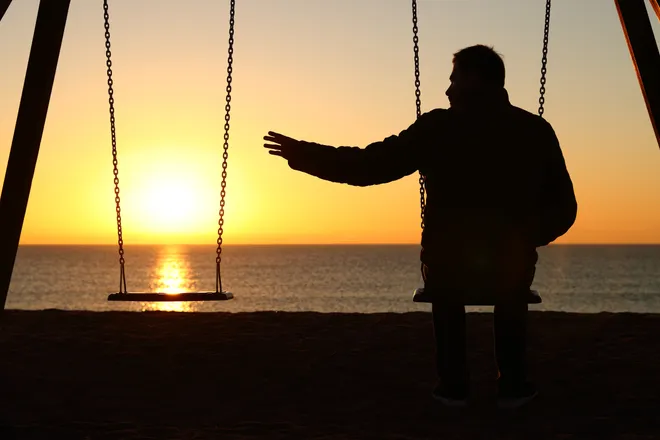When you 'stop running from it' and know you’ve outgrown your friend group
Yes, romantic relationships are great. But there's something special about long-term friendships – the giggle-worthy gossip, the inside jokes, the unmatched comfort level built on years of trust. But what happens when your friendship changes, and what once came so easy shifts into unanswered texts, missed phone calls and nary a like on social media?
The TikTok trend where people have decided to "stop running from it" refers to those who return from a social setting with friends, only to realize that they've outgrown their relationships – and perhaps avoided their own emotions along the way.
If this sounds like you, friendship experts don't want you to worry. It's normal for friendships to evolve over time. Just keep an eye out for some warning signs it might be time to hit pause on a friendship (or in some cases, say goodbye for good).
"Like any relationship, friendships are a two-way street," says Carla Marie Manly, host of podcast "Imperfect Love" and author of "The Joy of Imperfect Love." "If both people aren’t invested in making the relationship viable in the long run, the friendship will falter over time."

How to tell if your friendship is on the rocks
Sometimes outgrowing a friendship is simple: You just don't want to see them. "A major sign of outgrowing a friendship is a lack of interest in meeting up with a friend," Manly says. "This apathy can even shift over time into overt avoidance." Maybe this friend drains your energy if you're doing all the outreach, or maybe they just aren't as fun to be around anymore. Or you've discovered you have very little in common anymore.
Expect this to happen with people you've known a long time. Some people will stagnate in their lives and expect the same of their friendships. Others will grow and likely want something more.
You might even harbor a lot of feelings for someone but still not want to devote that much time to them, or you just don't have any to give. That's OK. "If you find yourself losing interest, you still care for this person, but aren't as interested in those updates, because it doesn't feel relevant to where you are, and you feel the engagement drop in that way, that could be a sign as well," says Danielle Bayard Jackson, friendship educator and author of "Fighting for our Friendships."
It could also be simple on the other end of the spectrum, where you're butting heads with your friend or sitting with that walking-on-eggshells feeling. Spoiler alert: The shells will crack.
"This is an indicator that the friendship is misaligned and you may have outgrown it," says T.M. Robinson-Mosley, counseling psychologist, "especially if you look at disagreements that devolve into personal attacks."
Girl, it's so confusing sometimes:Lorde, Charli XCX’s viral moment and the truth about friendship breakups
Just because it's over doesn't mean you failed
Judging a friendship by how long it lasted, or the fact it didn't last forever, is not necessarily the best metric to use when thinking about your friends. Is a successful friendship one that never ends? Or one where you two really loved each other during the time you were together?
Experts say friendship circles twist and turn over time, too. One study even found that we tend to replace half our friends every seven years.
"Our availability changes, the things that brought us together change. So you almost have to anticipate that happening," Jackson says.
Why might this occur? Think of it in terms of life stages. Did you meet friends in college? At work? A parenting class? Friendship changes happen frequently when people reach their mid-20s and their priorities take them in all kinds of directions – especially if and when the alcohol fog of your early 20s wears off.

In case you missed:Matt Damon, Ben Affleck and the power of (and need for) male friendship
Is your friendship worth saving?
Generally, as long as there hasn't been some kind of toxic behavior or abuse, it's not a bad idea to leave that friendship door ajar.
You may be tempted to only see a black-and-white approach to friendship via your TikTok algorithm: Someone "wronged" you and therefore you need to set a "boundary." Don't let it deter you from friendship altogether.
Why might some reach that conclusion, though? "I wonder if sometimes we want to put such a finality to it, because it gives us a sense of control," Jackson says.
But if leaving a friendship means being more yourself, it's likely worth the breakup.
Disclaimer: The copyright of this article belongs to the original author. Reposting this article is solely for the purpose of information dissemination and does not constitute any investment advice. If there is any infringement, please contact us immediately. We will make corrections or deletions as necessary. Thank you.







